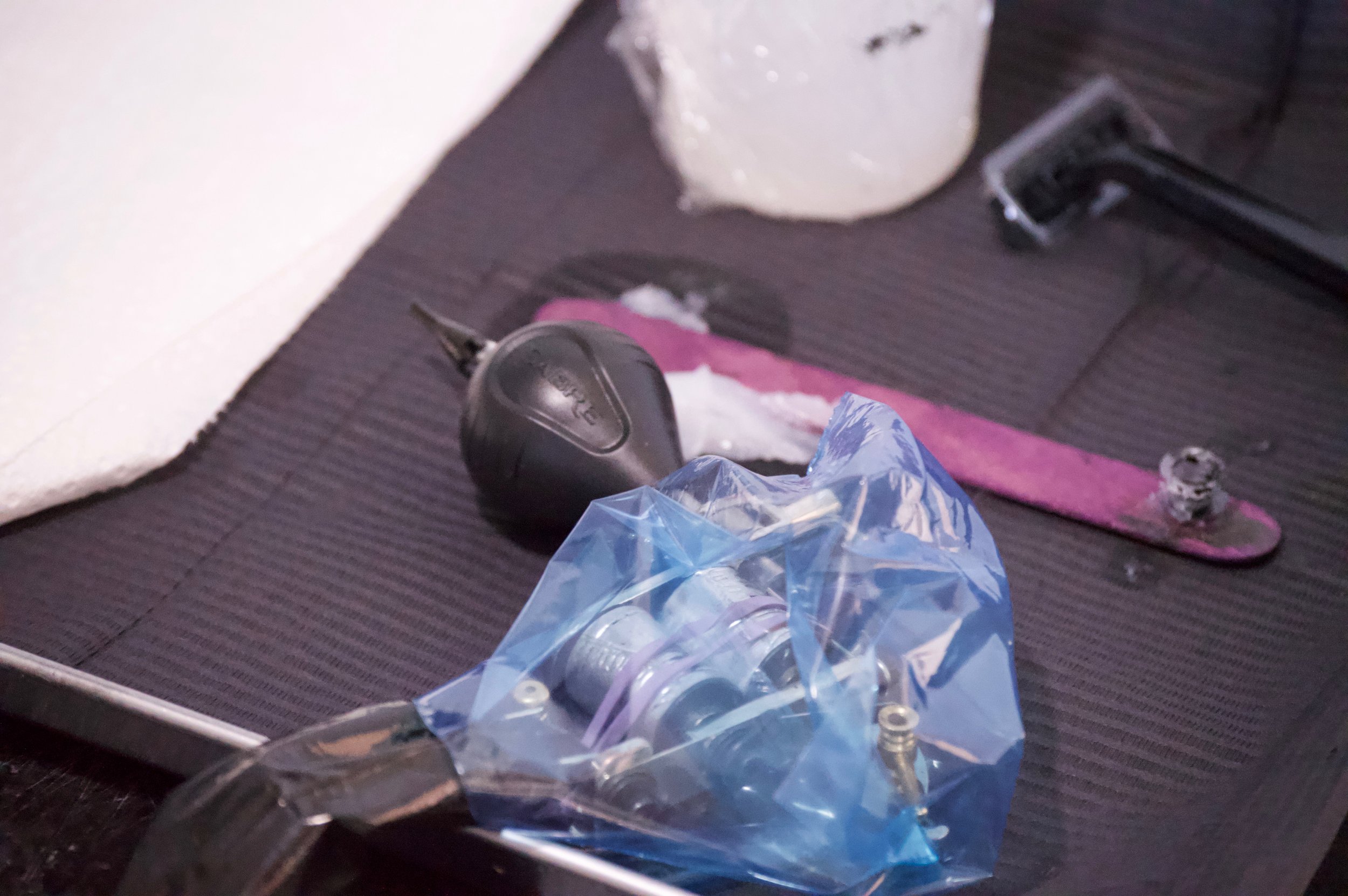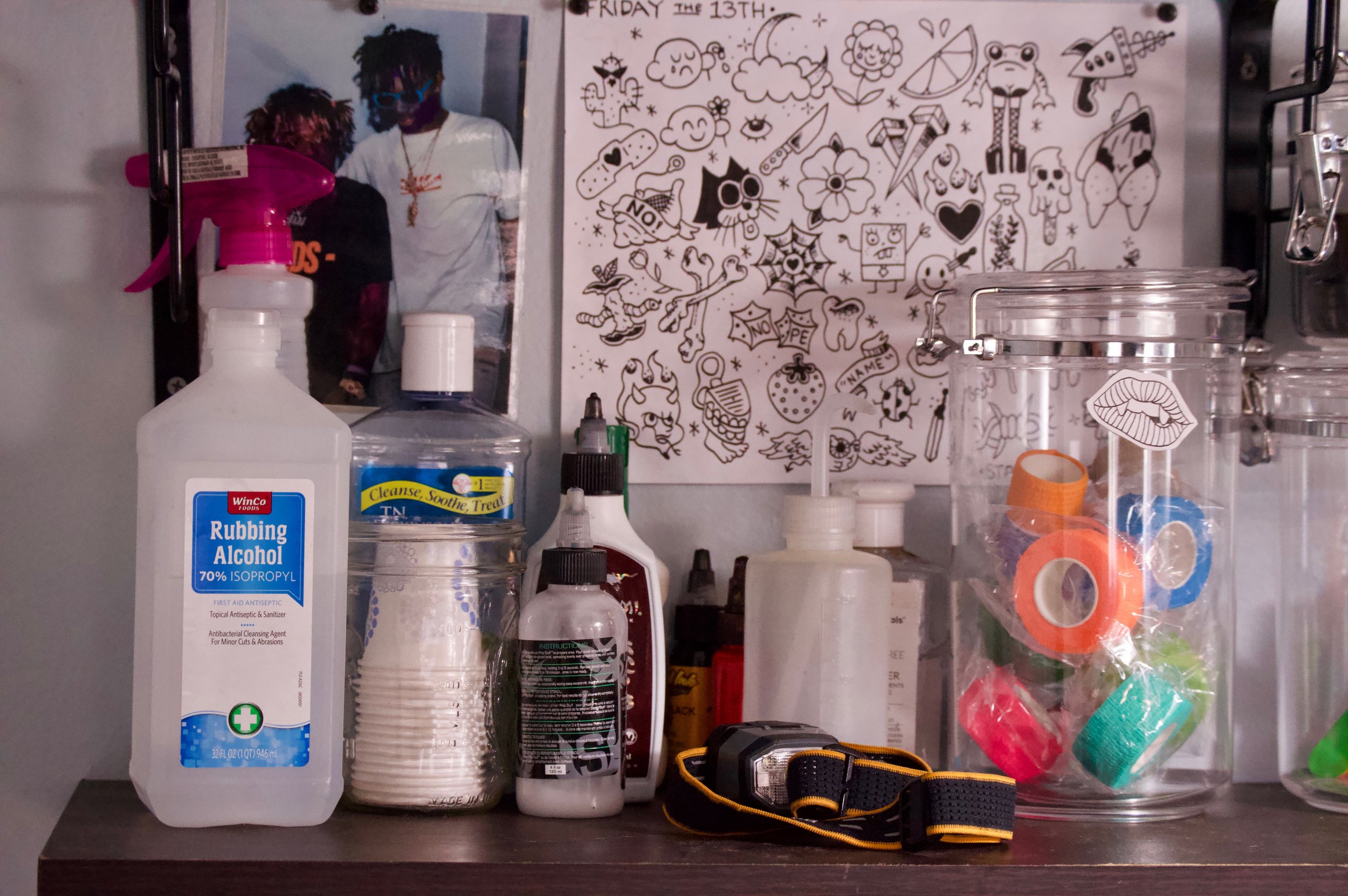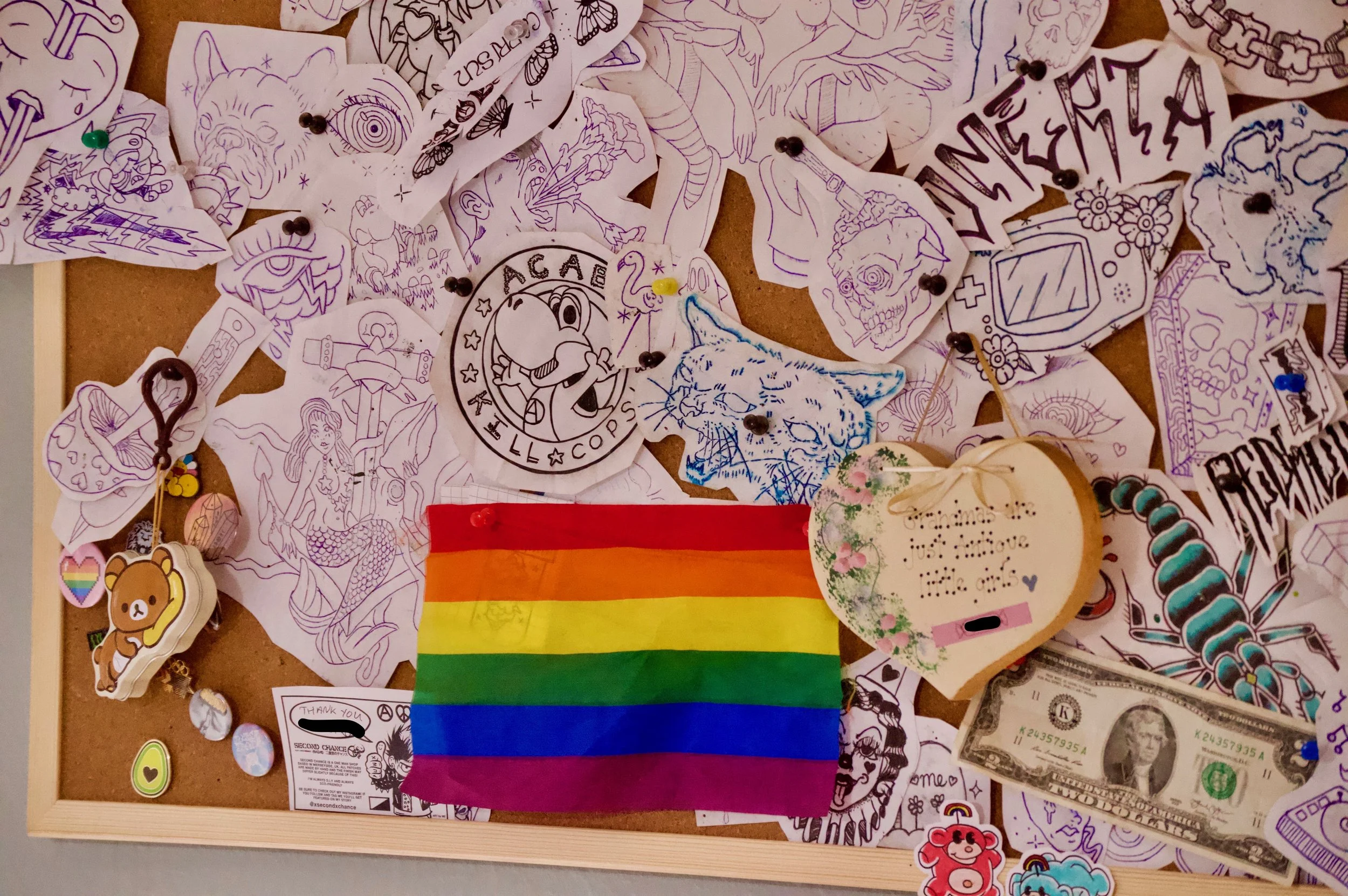The tattoo scene in Reno is brimming with artists who have either solidified their artistry with a large clientele and large following on social media, or are just starting out as apprentices in the many shops present all around Northern Nevada. Between them there are also independent artists who, either with or without prior experience in a shop-type setting, have made their services available at home.
This is the case with an artist I recently sat down and talked with whose instagram handle is @stabsnpokes. She chose to keep her name out of the article.
The local tattoo scene is competitive and can be cut throat. As a woman, it can also feel toxic.
She grew up in this scene and was always interested in art and drawing, saying she wanted to be a comic book artist. She got into the scene at age 15 through an ex-partner of hers who was an apprentice at the time.
Through a combination of apprenticing herself at multiple shops both in and out of Reno, having worked as an independent artist on and off over the years and knowing an array of artists in the scene, her experience was rife with male domination, harassment and belittlement of women artists.
“Every time I go to a tattoo shop, and show my work, they’re always trying to figure out how I should perfect my work,” she said of being treated unfairly compared to men.
Usually what happens with tattoo artists is that for some amount of time, before they are able to work full-time in a shop, they do apprenticeships under an artist who has been working in the scene for a good amount of time and are deemed professional by others in the field.
Depending on the shop-owner or mentor, apprenticeships can come with no guaranteed pay, often working part or full-time for the mentor and can take up to a year to fully complete. There are some artists, depending on who they work with who pay to be an apprentice.
For theartist who uses @stabsnpokes on Instagram this was a situation that came with a lot of friction. During her apprenticeship, she worked for an artist who owned a shop in Reno and one in Oklahoma. She worked with this artist up until his death which abruptly ended her apprenticeship. She then found it hard to find another shop to continue her work.
“…When you go to other shops, you have to have a resume, they want to know who you were mentored by, and the circumstances of his death wasn’t a good idea for people because he was dealing with substance abuse… he couldn’t vouch for me or anything like that, and a lot of artists wanted me to do an apprenticeship again. I just don’t have the time for that or the patience for that, because apprenticing is a soul crushing time of your life if you can deal with it,” she said.
How money is shared is also something that is extremely difficult she says of being a woman in the tattoo scene.
“My mentors and coworkers would talk about tips and I would hardly ever get tips, I’d get maybe a twenty like every other week, and I was living out of his shop at one time,” she said.
With that, there are levels of classicism as well. Remarks made about equipment that is considered cheap when according to her, she’s “seen lots of videos of people debunking that. Like pro tattoo artists testing out cheap Amazon equipment and they’re busting out like really nice tattoos, so it's all about skill.
Along with the financial instability, apprenticing can come with being treated poorly. She recounted that her shop experience consisted of being picked on and being taken advantage of by the other artists.
“They kind of haze you, and I was able to deal with it because I had a shitty childhood or whatever, so a lot of it wasn’t new to me. But they tried really hard to like get me to crack…,” she said.
It was often that some of the artists working out of the shop would take her things or use her equipment without asking. On top of it all, was the harassment that she experienced for being a woman.
She told me a story about a time she was late for work and her mentor suggested that as a repercussion, she’d have to give him oral sex. According to her, women in the space have those experiences all the time. She told me of another worker in the local tattoo industry who was sent pornographic videos with the implication to “re-make” it with the person sending it.
On talking about female artists she said, “They get all the grunt work they still get treated like apprentices, they get treated like they aren’t as good as the male workers that are there.”
Among these reasons and more, she said this is why she feels more comfortable working out of her home. She has a better handle on the clientele she works with and it comes with not having to deal with the issues of being a woman in a male dominated space.
“As long as I know what I’m doing and I’m not harming people, I’m good. I have my blood borne pathogens certification, I took the classes for that. I’m CPR certified in case something like that happens,” she said.
However, those in the tattoo scene often look down on individuals working out of their homes, deeming them as “scratchers”. People with no prior experience of tattooing, unaware of standard hygiene protocols, who typically buy the equipment and start giving out tattoos.
“The thing with scratchers is that they tend to take on shit that they don’t know what they’re doing, I won't do that. I’m not going to tattoo somebody and think that I can do it. If I really don’t feel comfortable doing it, I will recommend them to someone or to a shop, we’re still helping them get business,” she said.
With the shop mentality, there comes a lot of gatekeeping within the scene. Because it’s the artist giving out their work, the expectation is that the ultimate decision making lies with the person using the tattoo gun.
However, the issues arising from that include deeming what work is worthy and what isn’t. She said a lot of flack is given towards independent and small artists because if their work is outside of traditional or new-style tattooing, it’s looked at as “trash”.
“Art is subjective, people are getting tired of seeing the same old traditional artists, people want to break out of the box and get different shit. It’s really just not that deep. I don’t like how American tattoo[ing] is like ordering other people around and [dictating] things you can or can’t do, like it’s some big sacred thing,” she said.
She’s been working towards tattooing often because it’s something that she has a passion for and wants to create a more inclusive space where more people feel comfortable. She’d like to go to South Korea in the future and start making connections for tattooing there as well, and perhaps finally be able to escape the male toxicity of Reno’s scene behind her.


